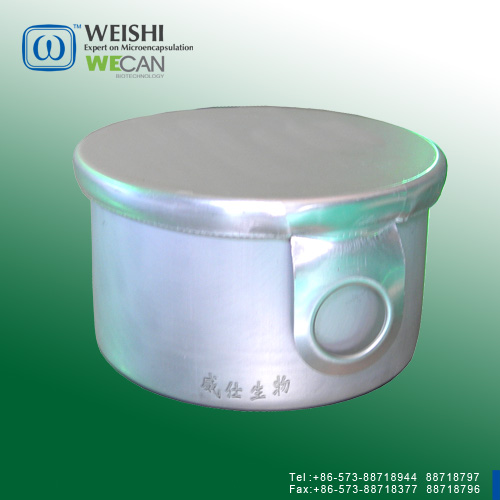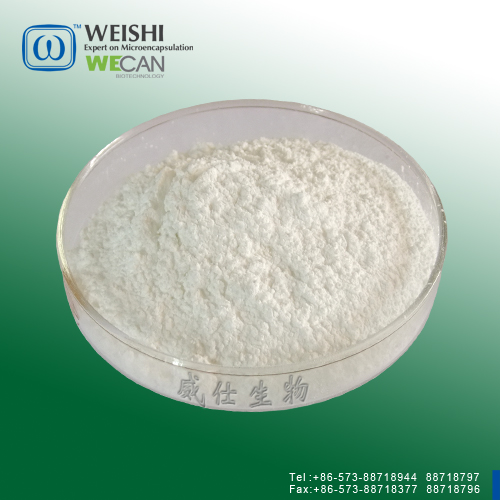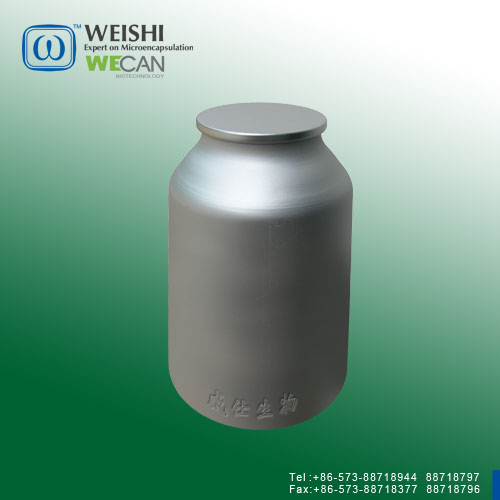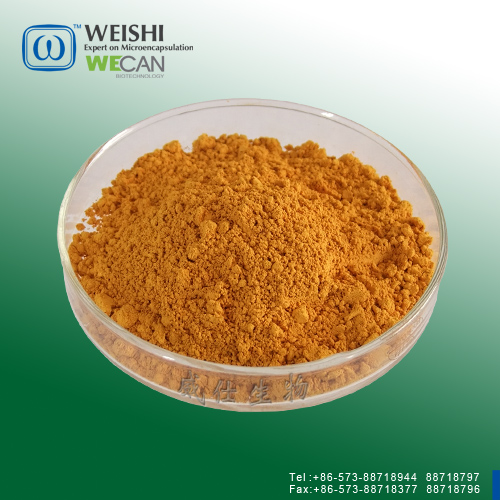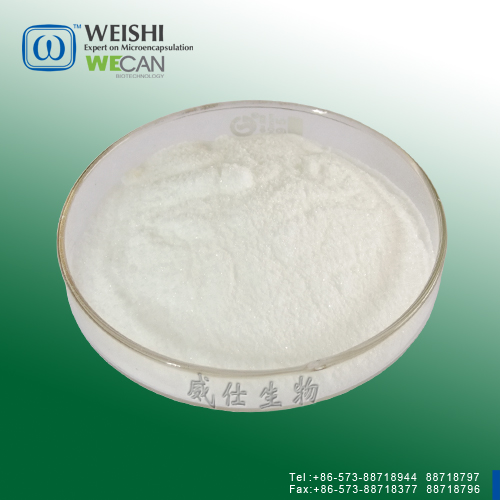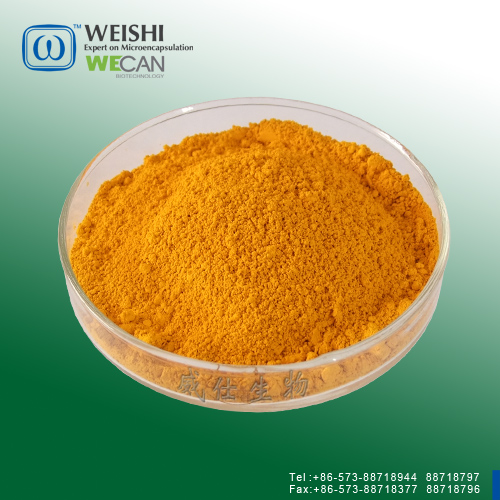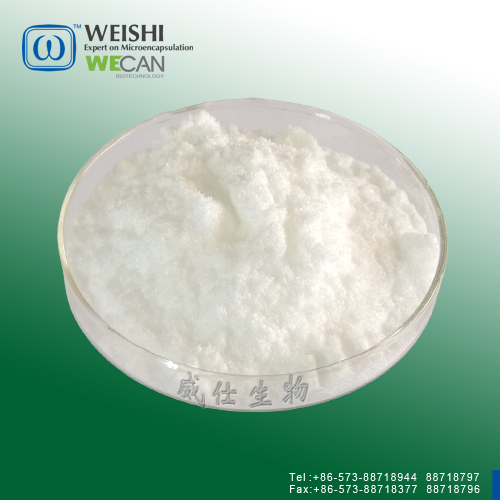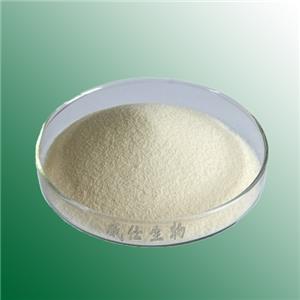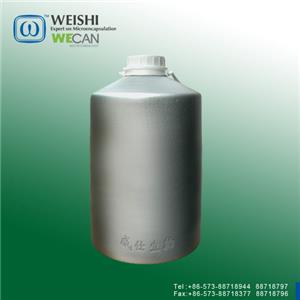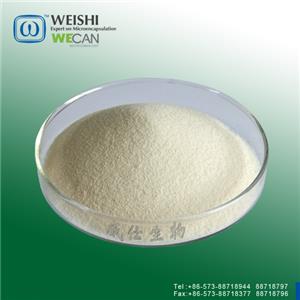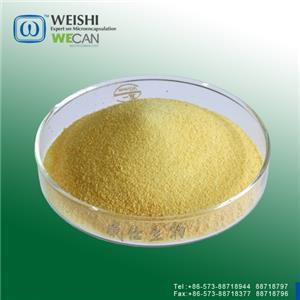Water Soluble Vitamins
Water-soluble vitamins (B vitamins and C vitamins) are soluble in Water but not in non-polar organic solvents. This kind of vitamin besides carbon, hydrogen oxygen element, some still contain the element such as nitrogen sulfur.
-
Vitamin B12 1%
Benefits of Vitamin B12:
Email Details
1. It can prevent and alleviate the occurrence of anemia, especially for patients with megaloblastic anemia, appropriate intake of vitamin B12 has a good preventive and alleviation effect.
2. It can reduce the incidence of cardiovascular and cerebrovascular diseases, because hyperhomocysteinemia is a risk factor for cardiovascular and cerebrovascular diseases, and vitamin B12 is involved in the metabolism of methionine and homocysteine, which is important for reducing homocysteine Acid level has an important regulatory effect, so it has a good effect on preventing cardiovascular and cerebrovascular diseases. -
Methylcobalamin
Benefits of Vitamin B12:
Email Details
1. It can prevent and alleviate the occurrence of anemia, especially for patients with megaloblastic anemia, appropriate intake of vitamin B12 has a good preventive and alleviation effect.
2. It can reduce the incidence of cardiovascular and cerebrovascular diseases, because hyperhomocysteinemia is a risk factor for cardiovascular and cerebrovascular diseases, and vitamin B12 is involved in the metabolism of methionine and homocysteine, which is important for reducing homocysteine Acid level has an important regulatory effect, so it has a good effect on preventing cardiovascular and cerebrovascular diseases.
3. It can protect the function of the nervous system, so it has a good preventive and therapeutic effect on patients with abnormal mood, sluggish expression and unresponsiveness.
Usage
Peripheral neuropathies (diabetic and alcoholic neuropahty, drug induced neuropathy, lumbago, intercostal neuralgia and diabetic retinopahty, entrapment neuropahty and other neuropathies). -
Thiamine Hydrochloride
Synonyms: Thiaminenitrate (6CI);Thiamine nitrate (salt) (7CI,8CI);Thiazolium,3-[(4-amino-2-methyl-5-pyrimidinyl)methyl]-5-(2-hydroxyethyl)-4-methyl-,nitrate (salt) (9CI);3-(4-Amino-2-methylpyrimidyl-5-methyl)-4-methyl-5,b-hydroxyethylthiazolium nitrate;Aneurine mononitrate;Aneurine-nitrate;Betabion mononitrate;Vitamin B1mononitrate;Vitamin B1 nitrate;Vitamin B1 mononitrate;Thiazolium,3-[(4-amino-2-methyl-5-pyrimidinyl)methyl]-5-(2-hydroxyethyl)-4-methyl-,nitrate (1:1);Thiamine mononitrate;
Email Details
CAS Registry number: 532-43-4 -
D-BIOTIN
Biotin is also known as vitamin B7, vitamin H, coenzyme R. It was recognized as an essential nutrient for mammals in 1941. Humans and other mammals cannot synthesize biotin, and must obtain exogenous biotin from food through intestinal absorption, or synthesize endogenous biotin through coliform bacteria.
Email Details -
Folic Acid
Folic acid has the following effects:
Email Details
Helps prevent neural tube defects (also called "neural tube defects"), including very serious birth defects such as spina bifida and anencephaly. Neural tube defects are common birth defects in newborns.
May also help reduce your baby's risk of other types of birth defects, such as cleft lip and palate and certain types of heart defects.
To prevent anemia in pregnant women, the body of pregnant women needs folic acid to make normal red blood cells.
It is very important for the basic structure of DNA and cells. Therefore, getting enough folic acid is especially important for the rapidly growing placenta and baby.
Taking a multivitamin with folic acid may reduce the risk of preeclampsia in pregnant women. -
Ascorbic Acid
Vitamin C (Ascrobic Acid) Powder
Email Details
Vitamin C (Ascrobic Acid) Granular
Vitamin C-Calcium
Vitamin C-Sodium
Vitamin C-Palmitate -
Thiamine Mononitrate
Vitamin B1 is involved in the metabolism of various substances in the human body, especially in the catabolism of carbohydrates, and can also promote gastrointestinal motility and increase appetite. In addition, it has the effect of protecting the nervous system. The lack of vitamin B1 in the human body may cause some nervous system diseases, such as numbness of the extremities, muscle atrophy and even neurodegeneration, neuritis and other manifestations. In addition, lack of vitamin B1 can also cause beriberi. Clinically, vitamin B1 supplementation can be used for Treat these conditions. In addition to beriberi and neurological diseases, it can also treat malnutrition and anorexia caused by lack of vitamin B1. For some neurosis, the use of vitamin B1 also has the effect of adjuvant therapy, especially chronic gastritis or irritable bowel syndrome and some gastrointestinal motility disorders, vitamin B1 can be used for adjuvant therapy.
Email Details -
Riboflavin
Vitamin B2, also known as riboflavin, is a water-soluble vitamin belonging to the B group of vitamins. Vitamin B2 is often used as a form of coenzyme and participates in the body's biological oxidation and material metabolism. The main functions and effects of vitamin B2 tablets are as follows:
Email Details
1. Promote cell development and regeneration. Vitamin B2 can promote the normal growth of skin and hair, prevent stomatitis, cheilitis, glossitis and other inflammatory reactions, and reduce visual fatigue.
2. Vitamin B2 can participate in the process of biological oxidation and energy metabolism in the body. It is related to the metabolism of carbohydrates, proteins and fats. It can promote the growth and development of the body and maintain the integrity of the cell membrane.
3. Vitamin B2 can participate in the metabolism of vitamin B6 and niacin, so that the B vitamins play a coordinated role. -
Niacinamide
Niacinamide, also known as vitamin B3, has the functions of whitening and lightening spots, brightening skin tone, anti-aging, moisturizing, repairing barriers, etc. Niacinamide can inhibit the shedding of melanin keratinocytes, reduce skin dullness, brighten skin tone, and achieve whitening effect. It can also accelerate cell metabolism, and at the same time contribute to the synthesis of collagen and keratin, to achieve the purpose of anti-aging. Niacinamide maintains the skin's moisture, repairs the skin's barrier, and reduces moisture loss. Niacinamide also has the effect of controlling oil and shrinking pores for oily skin.
Email Details


